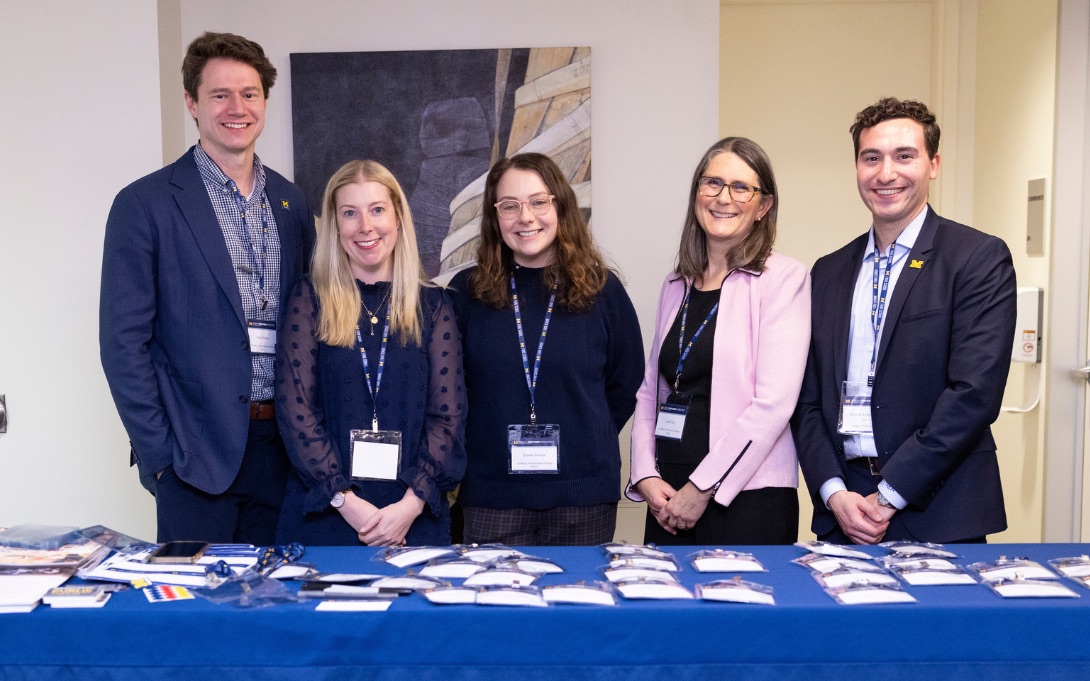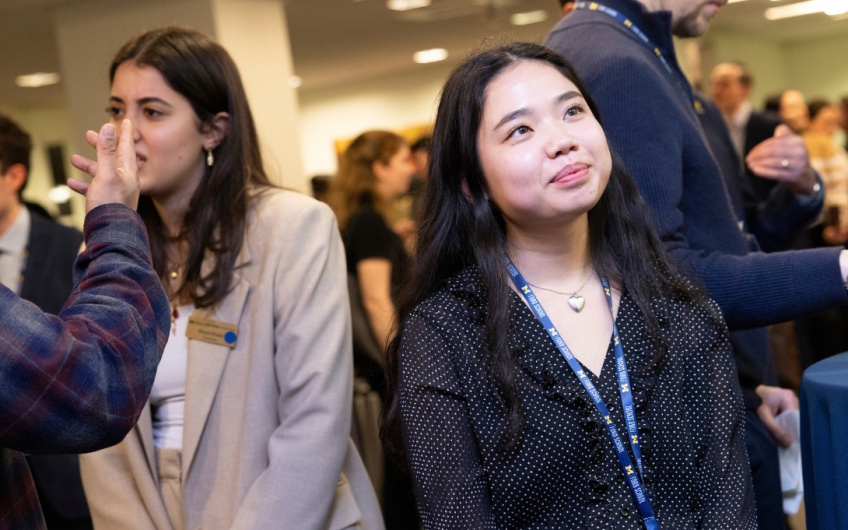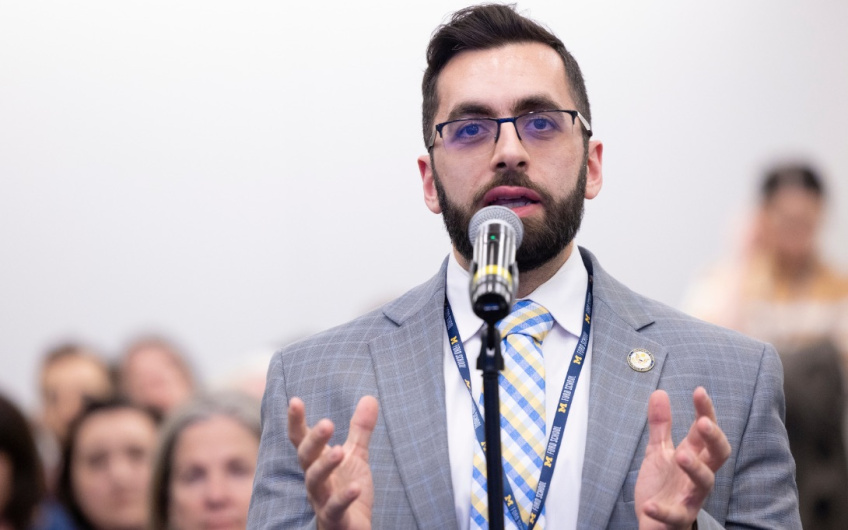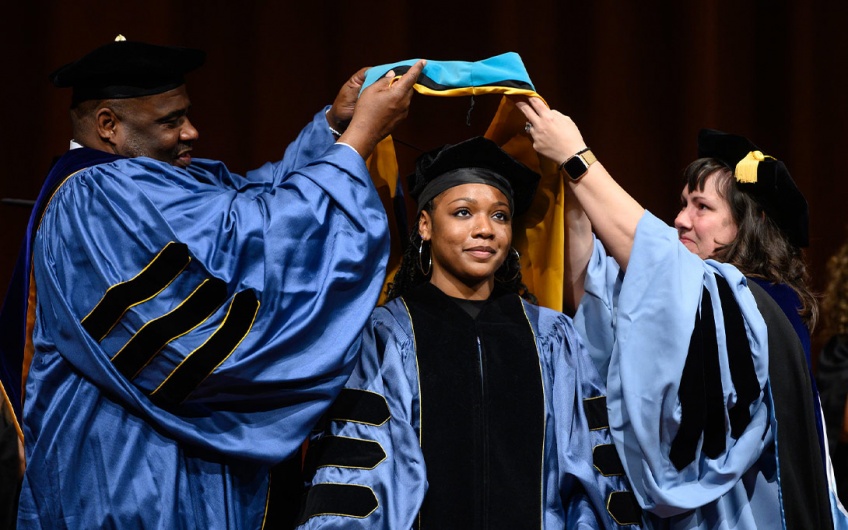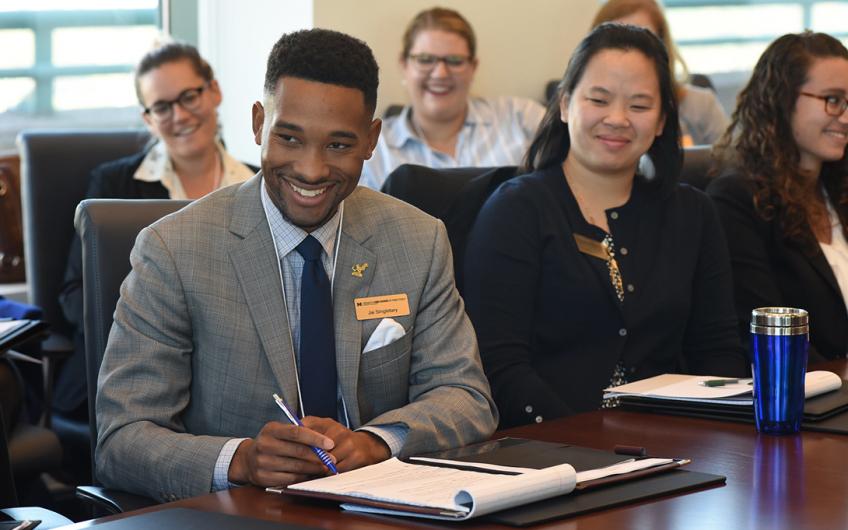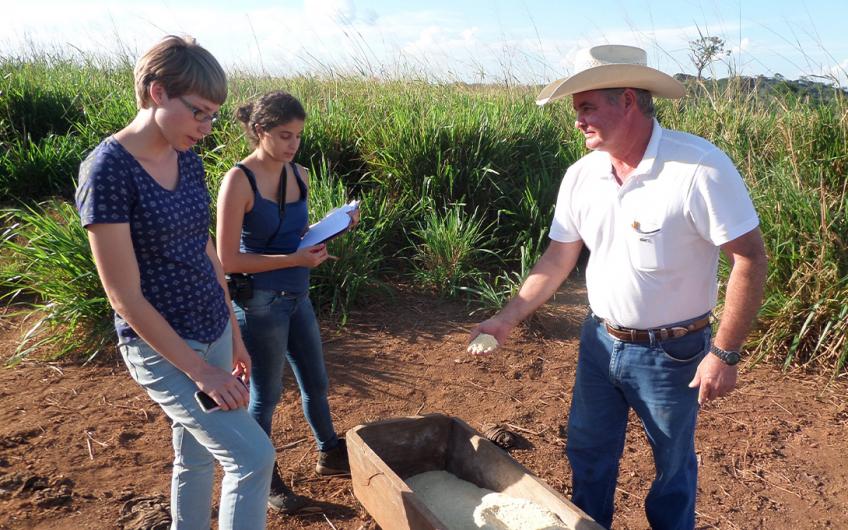-
Equip your organization with graduates who excel in research, analytical, and communication skills specifically tailored to solve complex policy challenges. Their experience in real-world policy analysis and consulting projects ensures they can hit the ground running.
Harness the power of a student body that brings varied backgrounds and fresh insights. This diversity fuels creative problem-solving and meaningful change, making them valuable contributors to your team.
Strengthen your leadership pool with graduates armed with rigorous academic training and a commitment to public service. They are prepared to lead initiatives in government, non-profits, and private sectors, aligning with your organizational goals.
For employers
Find the skilled, passionate public leaders your agency or organization needs to tackle the world’s most urgent and complex challenges.
We understand that finding the right talent is crucial to achieving your mission. The career services team at the Ford School is ready to connect you with candidates who bring expertise, creativity, and a commitment to the public good. From job listings to on-campus interviews, we guide you through the recruitment process, making it seamless and effective.
Why hire Ford School graduates?
Students at the Ford School are diverse, engaged, and passionate. Our programs prepare them to think analytically, communicate effectively, lead, and collaborate to solve complex problems. The Ford School curriculum emphasizes an applied approach to policy education so that our students have hands-on, practical experiences, they understand real-world challenges and go on to lead in organizations across various sectors, addressing critical public policy issues like health care, education, energy, and more. See how our graduates can help fulfill your mission:
Diverse leaders of tomorrow. Find them here.
Explore how our undergraduates, master's graduates, and doctoral candidates use their education to tackle complex public policy challenges and create significant impact.
Making an impact in and outside of the classroom
MPP student demographics (2024-25)
MPP countries of origin
14
International MPP students
32%
MPP students of color (U.S. only)
27%
MPP average age
26
MPP avg years work experience
3.6
Internship Requirements
GCS employer relations manager Casey Sullens breaks down the requirements for the MPP student internship experience, from criteria the internship itself has to meet to the work the student must accomplish.
Additional University of Michigan resources
The University of Michigan has more than 20 career offices that work with employers to address their specialized recruiting needs. Hire Blue features tools to connect employers with the appropriate career offices. Many job fairs are offered through U-M’s central Career Center.
The Business Engagement Center helps businesses identify key resources and facilitates university/industry partnerships in research, student recruiting, technology licensing, continuing education and more.
Learn more about our programs
Have any questions?

Casey Sullens
Assistant Director, Employer Relations

